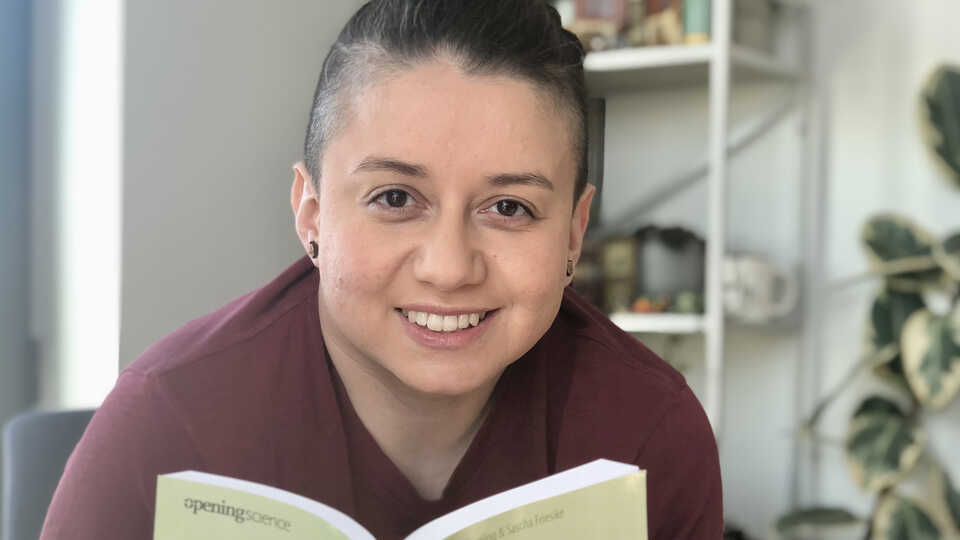
Monica's Story (she/her)
During the pursuit of my PhD, I discovered that incentives in scholarship promote practices that make knowledge less accessible. How does this happen? Well, imagine it’s a pleasant weather day, and you’re on your way to the main library. You know, the big one with the multiple floors? The books about fish are on the fourth floor, and you’re hoping to identify the type of fish you caught last weekend. You sit with the tome that is the "Big Book of Fishes" and start leafing through the pages. Despite its length, there's so much and so many left out of that book—and out of science itself.
Information included in this "Big Book of Fishes" goes through several selective processes that narrow the scope of the content. Information needs to be substantiated to be included, of course, but even the substantiated information that the author has at their disposal is selective. What’s ultimately included in the book is only the information that was accessible to the author. Many scientific papers that contain information on fishes, atoms, or anything else we know about the world are locked behind paywalls. The range of who contributes these papers is also very narrow—marginalized groups are often locked out of science due to access to education, systemic biases, and inequality.
As a queer, Mexican, immigrant woman, I have gone through so many selective processes in my journey to become a scientist that were designed to only let through a trickle of people. I almost didn’t go to college when my visa in the United States expired. When I applied to graduate school in Canada, I was forced to take an extra semester by the admission committee despite having all of the same entrance requirements as my successfully admitted and less marginalized peers. In graduate school, unsupported by grants, I had to work extra jobs to make ends meet. I was almost left out of science, and science would have missed out on the contributions of this proud, queer, Latina.
Inspired by my journey, I now work on open science to make science accessible and more inclusive, from scientific papers to the scientists who write them. With open science we have the potential to make contributions to science (like the "Big Book of Fishes") as diverse as the fish communities it describes.
Explore New Science anywhere through our virtual Google Arts & Culture exhibit, or see our new, in-person exhibit on your next Academy visit.
To learn more about the partners that helped make New Science possible, visit: